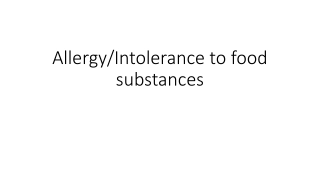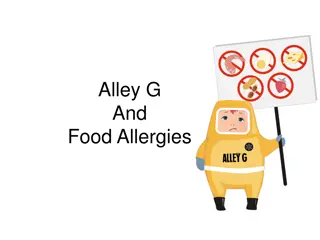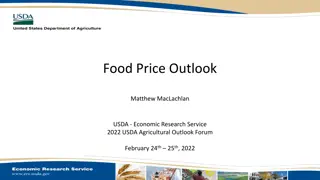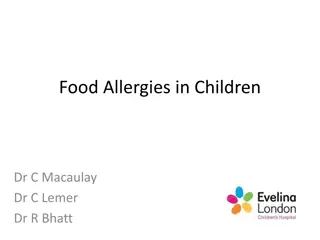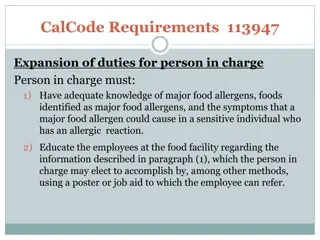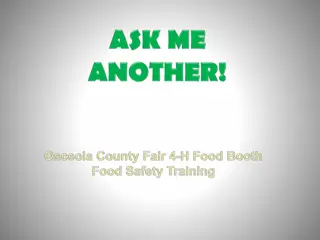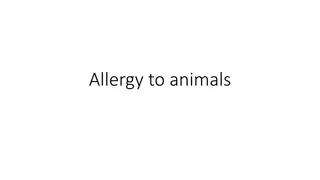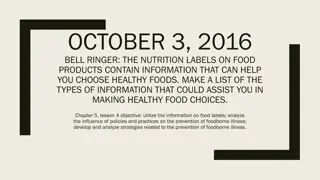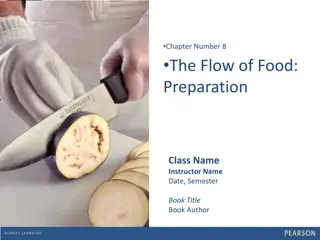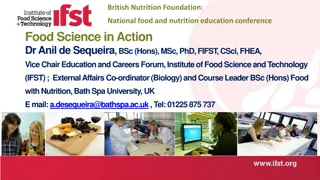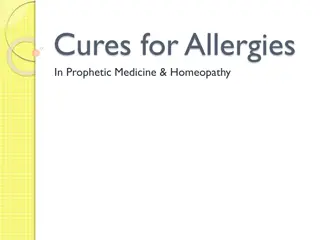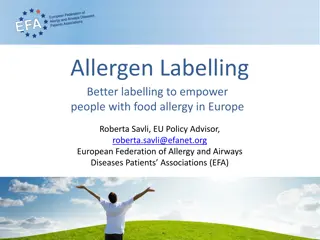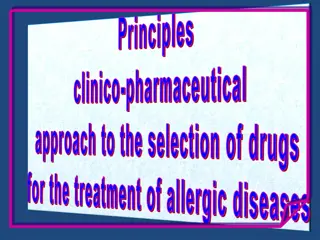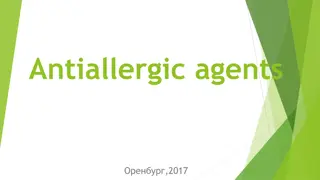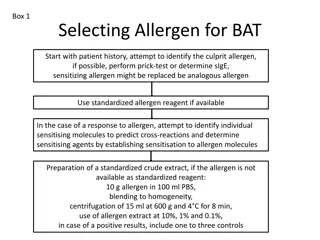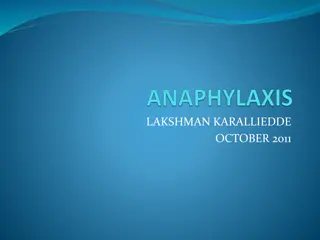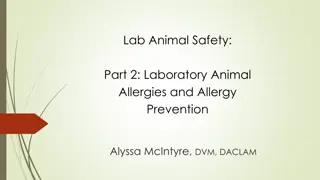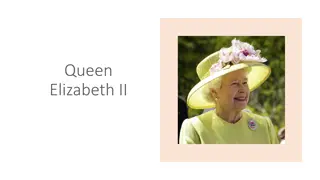Understanding and Managing Food Allergies: Insights from Dr. Elizabeth Kiragu's Presentation
Dr. Elizabeth Kiragu, a Paediatric Allergy Specialist, shared valuable insights on the challenges and strategies in dealing with food allergies at the KPA Conference in April 2019. The presentation highlighted the importance of allergen avoidance, risk assessment, education for caregivers, and regular follow-ups to manage food allergies effectively. Cases of children with severe cow milk allergies underscored the critical need for awareness, preparedness, and proper management to prevent accidents and potential life-threatening situations.
Download Presentation

Please find below an Image/Link to download the presentation.
The content on the website is provided AS IS for your information and personal use only. It may not be sold, licensed, or shared on other websites without obtaining consent from the author. Download presentation by click this link. If you encounter any issues during the download, it is possible that the publisher has removed the file from their server.
E N D
Presentation Transcript
THE OTHER SIDE OF FOOD ALLERGIES Dr. Elizabeth Kiragu Paediatric Allergy Specialist Aga Khan University Hospital, Nairobi KPA Conference 10thApril 2019
Family Patient Food industry School Community
2 year old girl Severe cow milk allergy on EHCMF Multi trigger wheezer controlled on ICS Young mother, much older father Closely surrounded by extended family English reading and oral skills limited Issue frequent accidental exposure to milk in the home
ALLERGEN AVOIDANCE Educate all care givers Define the allergen Forms of that allergen Reading labels Hidden antigens Age appropriate behaviour modification
4 year old boy Severe cow milk allergy Uncontrolled asthma not on treatment Family of 2 boys, older child also has asthma not on any treatment and food allergies Dad is a doctor
Issues Parties, outings, restaurant visits present a risk of reaction Delay in recognition of severity of reaction Unprepared to manage a reaction False sense of security
The ability of a parent to assess risk and manage their child s condition is highly dependent on their own knowledge, attitude and beliefs about food allergy Bidat E.
Take home Family education Regular follow up- Assess food allergy status Manage associated conditions Re evaluate use of emergency medication
9 year old boy Ex prem 34/ 40 Severe uncontrolled asthma on maximal therapy Anaphylaxis to egg, moderate immediate reactions to fish, beans EOE dairy, FTT Eczema, Allergic rhinitis
MODELFOODALLERGICPATIENT Particular about his food Recognise an allergic reaction immediately Institute emergency treatment
CHALLENGESATSCHOOL School acceptance administration, parents and other children Policy to prevent exposure to allergens System to manage acute reactions Class parties, trips, games, fun days, hospital admissions Bullying
14 year old girl Uncontrolled asthma Allergic rhinitis Moderate atopic eczema Severe allergy Peanut, Hazelnut, shell fish
ISSUES Poor adherence to asthma & rhinitis treatment Deliberate exposure to food allergens Delay in using emergency treatment
HIGHRISKGROUP Getting more independent Easily influenced by peer pressure Desperate to fit in Risk taking behavior Food allergies in later childhood are more severe Augmenting factors
WAYFORWARD Engage them in their management Figure out their priorities Re - emphasize the dangers Involve family and friends Counselling


